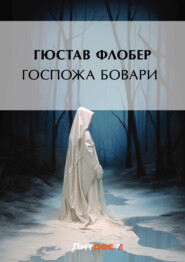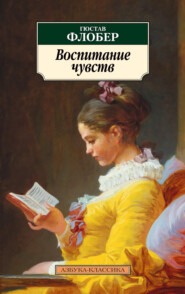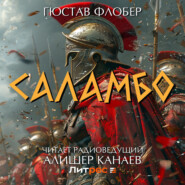По всем вопросам обращайтесь на: info@litportal.ru
(©) 2003-2024.
✖
The Temptation of St. Antony; Or, A Revelation of the Soul
Настройки чтения
Размер шрифта
Высота строк
Поля
"I recollect having seen hundreds of them at a time, in the Island of Elephantinum, in the reign of Dioclesian. The Emperor had given up to the nomads a large territory, on condition that they should protect the frontiers; and the treaty was concluded in the name of the invisible Powers. For the gods of every people were ignorant about other people. The Barbarians had brought forward theirs. They occupied the hillocks of sand which line the river. One could see them holding their idols between their arms, like great paralytic children, or else, sailing amid cataracts on trunks of palm-trees, they pointed out from a distance the amulets on their necks and the tattooings on their breasts; and that is not more criminal than the religion of the Greeks, the Asiatics, and the Romans.
"When I dwelt in the Temple of Heliopolis, I used often to contemplate all the objects on the walls: vultures carrying sceptres, crocodiles playing on lyres, men's faces joined to serpents' bodies, women with cows' heads prostrated before the ithyphallic deities; and their supernatural forms carried me away into other worlds. I wished to know what those calm eyes were gazing at. In order that matter should have so much power, it should contain a spirit. The souls of the gods are attached to their images. Those who possess external beauty may fascinate us; but the others, who are abject or terrible … how to believe in them? …"
And he sees moving past, close to the ground, leaves, stones, shells, branches of trees, vague representations of animals, then a species of dropsical dwarfs. These are gods. He bursts out laughing.
Behind him, he hears another outburst of laughter; and Hilarion presents himself, dressed like a hermit, much bigger than before – in fact, colossal.
Antony is not surprised at seeing him again.
"What a brute one must be to adore a thing like that!"
Hilarion– "Oh! yes; very much of a brute!"
Then advance before them, one by one, idols of all nations and all ages, in wood, in metal, in granite, in feathers, and in skins sewn together. The oldest of them, anterior to the Deluge, are lost to view beneath the seaweed which hangs from them like hair. Some, too long for their lower portions, crack in their joints and break their loins while walking. Others allow sand to flow out through holes in their bellies.
Antony and Hilarion are prodigiously amused. They hold their sides from sheer laughter.
After this, idols pass with faces like sheep. They stagger on their bandy legs, open wide their eyelids, and bleat out, like dumb animals: "Ba! ba! ba!"
In proportion as they approach the human type, they irritate Antony the more. He strikes them with his fist, kicks them, rushes madly upon them. They begin to present a horrible aspect, with high tufts, eyes like bulls, arms terminated with claws, and the jaws of a shark. And, before these gods, men are slaughtered on altars of stone, while others are pounded in vats, crushed under chariot-wheels, or nailed to trees. There is one of them, all in red-hot iron, with the horns of a bull, who devours children.
Antony– "Horror!"
Hilarion– "But the gods always demand sufferings. Your own, even, has wished – "
Antony, weeping – "Say no more – hold your tongue!"
The enclosure of rocks changes into a valley. A herd of oxen pastures there on the shorn grass. The shepherd who has charge of them perceives a cloud; and in a sharp voice pierces the air with words of urgent entreaty.
Hilarion– "As he wants rain, he tries, by his strains, to coerce the King of Heaven to open the fruitful cloud."
Antony, laughing – "This is too silly a form of presumption!"
Hilarion– "Why, then, do you perform exorcisms?"
The valley becomes a sea of milk, motionless and illimitable.
In the midst of it floats a long cradle, formed by the coils of a serpent, all whose heads, bending forward at the same time, overshadow a god who lies there asleep. He is young, beardless, more beautiful than a girl, and covered with diaphanous veils. The pearls of his tiara shine softly, like moons; a chaplet of stars winds itself many times above his breast, and, with one hand under his head and the other arm extended, he reposes with a dreamy and intoxicated air. A woman squatted before his feet awaits his awakening.
Hilarion– "This is the primordial duality of the Brahmans – the absolute not expressing itself by any form."
Upon the navel of the god a stalk of lotus has grown; and in its calyx appears another god with three faces.
Antony– "Hold! what an invention!"
Hilarion– "Father, Son and Holy Ghost, in the same way make only one person!"
The three heads are turned aside, and three immense gods appear. The first, who is of a rosy hue, bites the end of his toe. The second, who is blue, tosses four arms about. The third, who is green, weaves a necklace of human skulls. Immediately in front of them rise three goddesses, one wrapped in a net, another offering a cup, and the third brandishing a bow.
And these gods, these goddesses multiply, become tenfold. On their shoulders rise arms, and at the ends of their arms are hands holding banners, axes, bucklers, swords, parasols and drums. Fountains spring from their heads, grass hangs from their nostrils.
Riding on birds, cradled on palanquins, throned on seats of gold, standing in niches of ivory, they dream, travel, command, drink wine and inhale flowers. Dancing-girls whirl around; giants pursue monsters; at the entrances to the grottoes, solitaries meditate. Myriads of stars and clouds of streamers mingle in an indistinguishable throng. Peacocks drink from the streams of golden dust. The embroidery of the pavilions blends with the spots of the leopards. Coloured rays cross one another in the blue air, amid the flying of arrows and the swinging of censers. And all this unfolds itself, like a lofty frieze, leaning with its base on the rocks and mounting to the very sky.
Antony, dazzled – "What a number of them there are! What do they wish?"
Hilarion– "The one who is scratching his abdomen with his elephant's trunk is the solar god, the inspirer of wisdom. That other, whose six heads carry towers and fourteen handles of javelins, is the prince of armies, the fire-devourer. The old man riding on a crocodile is going to bathe the souls of the dead on the seashore. They will be tormented by this black woman with rotten teeth, the governess of hell. The chariot drawn by red mares, which a legless coachman is driving, is carrying about in broad daylight the master of the sun. The moon-god accompanies him in a litter drawn by three gazelles. On her knees, on the back of a parrot, the goddess of beauty is presenting her round breast to Love, her son. Here she is farther on; she leaps with joy in the prairies. Look! look! With a radiant mitre on her head, she runs over the cornfields, over the waves, mounts into the air, and exhibits herself everywhere. Between these gods sit the genii of the winds, of the planets, of the months, of the days, and a hundred thousand others! And their aspects are multiplied, their transformations rapid. Here is one who from a fish has become a tortoise, he assumes the head of a wild boar, the stature of a dwarf!"
Antony– "For what purpose?"
Hilarion– "To establish equilibrium, to combat evil. Life is exhausted, its forms are used up; and it is necessary to progress by metamorphoses of them."
Suddenly a naked man appears, seated in the middle of the sand with his legs crossed. A large circle vibrates, suspended behind him. The little curls of his black hair, deepening into an azure tint, twist symmetrically around a protuberance at the top of his head. His arms, of great length, fall straight down his sides. His two hands, with open palms, rest evenly on his thighs. The lower portions of his feet present the figures of two suns; and he remains completely motionless in front of Antony and Hilarion, with all the gods around him placed at intervals upon the rocks, as if on the seats of a circus. His lips open, and in a deep voice he says:
"I am the master of the great charity, the help of creatures, and I expound the law to believers and to the profane alike. To save the world I wished to be born amongst men; the gods wept when I went away. At first, I sought a woman suitable for the purpose – of warlike race, the spouse of a king, exceedingly virtuous and beautiful, with a deep navel, a body firm as a diamond; and at the time of the full moon, without the intervention of any male, I entered her womb. I came out through her right side. Then the stars stopped in their motions."
Hilarion murmurs between his teeth:
"'And when they saw the stars stop, they conceived a great joy!'"
Antony looks more attentively at the Buddha, who resumes:
"From the bottom of the Himalaya, a religious centenarian set forth to see me."
Hilarion– "'A man called Simeon, who was not to die before he had seen the Christ!'"
The Buddha– "They brought me to the schools. I knew more than the doctors."
Hilarion– " … 'In the midst of the doctors; and all those who heard him were ravished by his wisdom.'"
Antony makes a sign to Hilarion to keep silent.
The Buddha– "I went continually to meditate in the gardens. The shadows of the trees used to move; but the shadow of the one that sheltered me did not move. No one could equal me in the knowledge of the Sacred Writings, the enumeration of atoms, the management of elephants, waxworks, astronomy, poetry, boxing, all exercises and all arts. In compliance with custom, I took a wife; and I passed the days in my royal palace, arrayed in pearls, under a shower of perfumes, fanned by the fly-flappers of thirty-three thousand women, and gazing at my people from the tops of my terraces adorned with resounding bells. But the sight of the world's miseries made me turn aside from pleasures. I fled. I went a-begging on high-ways, covered with rags collected in the sepulchres; and, as there was a very learned hermit, I offered myself as his servant. I guarded his door; I washed his feet. All sensation, all joy, all languor, were annihilated. Then, concentrating my thoughts on a larger field of meditation, I came to know the essence of things, the illusion of forms. I speedily abandoned the science of the Brakhmans. They are eaten up with lusts beneath their austere exterior; they anoint themselves with filth, and sleep upon thorns, believing that they arrive at happiness through the path of death!"
Hilarion– "Pharisees, hypocrites, whited sepulchres, race of vipers!"
The Buddha– "I, too, have done astonishing things – eating for a day only a single grain of rice – and at that time grains of rice were not bigger than they are now – my hair fell off; my body became black; my eyes, sunken in their sockets, seemed like stars seen at the bottom of a well. For six years I never moved, remaining exposed to flies, to lions, and to serpents; and I subjected myself to burning suns, heavy showers, snow, lightning, hail, and tempest, without even shielding myself with my hand. The travellers who passed, assuming that I was dead, flung clods of earth at me from a distance.
"There only remained for me to be tempted by the Devil.
"I invoked him.
"His sons came – hideous, covered with scales, nauseous as charcoal, howling, hissing, bellowing, flinging at each other armour and dead men's bones. Some of them spirted out flames through their nostrils; others spread around darkness with their wings; others carried chaplets of fingers that had been cut off; others drank the venom of serpents out of the hollows of their hands. They have the heads of pigs, rhinoceroses, or toads – all kinds of figures calculated to inspire respect or terror."
Antony, aside – "I endured that myself in former times."
The Buddha– "Then he sent me his daughters – beautiful, well-attired with golden girdles, teeth white as the jasmine, and limbs round as an elephant's trunk. Some of them stretched up their arms when they yawned to display the dimples in their elbows; others blinked their eyes; others began to laugh and others unfastened one another's garments. Amongst them were blushing virgins, matrons full of pride, and queens with great trains of baggage and attendants."
Antony, aside– "Ah! that also!"

















